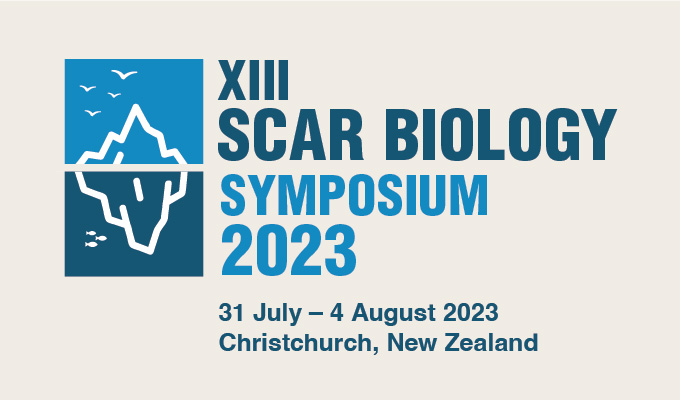Local Organising Committee
Conference Convenor
Prof. S. Craig Cary
(University of Waikato)
Craig is a native Californian who lived most of his early life in San Diego. He Received Ph.D. from Scripps Institution of Oceanography, at the University of California, San Diego CA, in 1989, where he began his long standing interest in deep-sea hydrothermal vents. He conducted post-doctoral work with Steve Giovannoni at Oregon State University before taking his first academic position at the University of Delaware. Craig Currently holds a joint professorial appointment between the University of Waikato, in New Zealand and University of Delaware. He is a microbial ecologist with more than 25 years of research focused on two primary areas—Studying microbial life in extreme environments—during which he has participated on over 29 deep-sea expeditions to the hydrothermal vents including many dives in research submersibles. His recent work one extreme environments now includes 12 seasons in Antarctica to study microbial life in the Dry Valleys, thought to be the coldest driest place on earth, and in the high temperature soils on the summit of Mt. Erebus. His other scientific passion lies in understanding the causes of blooms of harmful algae in aquatic systems.
Conference Co-Convenor and Treasurer
Assoc. Prof. Charles Lee
(University of Waikato)
Charlie grew up in Taiwan but has spent the past twenty years in New Zealand (and a significant portion of those years in Antarctica). he is a microbial ecologist who utilizes diverse technology-intensive approaches (e.g., genomics, molecular biology, drone-based remote sensing, and machine learning) to address basic and applied scientific challenges. He is the Co-PI for the Antarctic Science Platform flagship ecosystem project.
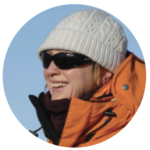
Dr. Vonda Cummings
(NIWA)
Vonda Cummings is a Principal Scientist - Marine Ecology and Programme Leader in the Coasts and Estuaries science centre at the National Institute of Water and Atmospheric Research (NIWA) in Wellington. She has a BSc (Hons) from University of Otago, and a PhD from University of Auckland. She has participated in and led a diverse range of projects focused on marine ecosystem structure and function both in New Zealand and Antarctica, the latter involving 14 seasons on ice to date. Her research combines field surveys and experiments with detailed laboratory experiments to understanding how coastal marine organisms and communities function today, and how they may be affected in a rapidly changing, high CO2 world. Her Antarctic research includes studies of population and community structure, function and ecophysiology of benthos and sea ice-associated communities, and their environmental drivers. She is actively involved in Antarctic research through the NZ Antarctic Science Platform and as a co-chair of the SCAR Action Group ANTOS.

Prof. Ian Hawes
(University of Waikato)
Ian initially hails from the UK, and after a PhD on Antarctic lakes at Durham University came to NZ to work with NIWA and subsequently the universities of Canterbury and finally Waikato. He has made more than 40 research visits to the Antarctic and Arctic, on several of which he met scientists who were using Antarctic soils as exoplanetary analogues. The “Homer Simpson” moment of realisation that under the perennial ice cover these lakes were windows on the Precambrian has led to ongoing collaborations with NASA, SETI, MIT and U California, both in Antarctica and at Atacama Desert and Pavilion Lake analogue sites.
Ian is currently leading a number of Antarctic research projects from his home base in Tauranga, at the Coastal Marine Field Station of the University of Waikato. There he teaches and supervises postgraduate students working on various aspects of aquatic science. His passion remains the polar regions.
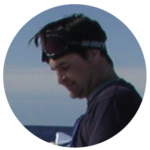
Prof. Miles Lamare
(University of Otago)
Miles is Associate Professor of Marine Sciences at the University of Otago, with research interests in the responses of marine invertebrate larvae to environmental change. After completing his PhD at the University of Otago, Miles undertook Post-Doctoral research at the University of Washington, Friday Harbour Laboratories, before returning home to New Zealand. Miles has been involved in Antarctic research since 1993, and has investigated the potential effects of environmental changes on polar marine invertebrates, including responses to UV-R, ocean acidification and warming. Miles current research, based in McMurdo Sound and funded through the New Zealand Antarctic Institute, is exploring the role of multiple stressors on polar marine species, and the potential for adaptation to change within these animals. Miles also runs a polar marine invertebrate rearing facility at his home institution in New Zealand, where long-term experiments on the acclimation of Antarctic invertebrates is undertaken.
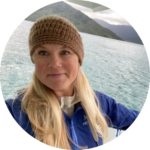
Assoc. Prof. Michelle LaRue
(University of Canterbury)
Dr Michelle La Rue received her PhD in 2014 in conservation biology from the University of Minnesota (USA) and has been an Associate Professor at the University of Canterbury since 2022. Her research speciality is marine ecology, to which she embraces a Te Ao Māori view with emphasis of marine life interconnected to environment. Dr La Rue recognises the importance of science communication and engagement, and completed a first-of-its-kind citizen science project called, Satellites Over Seals (SOS). In this project she engaged more than 320,000 citizen scientists to help her search for Weddell seals on satellite images. With such volunteer enthusiasm, her team went on to determine the first ever population estimate for Weddell seals in the Southern Ocean.
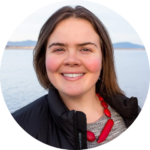
Dr. Alexis Marshall
(University of Waikato)
Alexis is a microbial ecologist and early career researcher at the University of Waikato, Hamilton, New Zealand. She grew up in Australia and was awarded a PhD in 2018 from La Trobe University, Australia. Her research investigates the role of microbial communities within complex ecosystems. Since moving to New Zealand in 2018 she has applied this knowledge to investigate the role of microbial communities in soils and permafrost of the McMurdo Dry Valleys and benthic habitats underneath the Ross Ice Shelf. Alexis is currently a Rutherford postdoctoral fellow and a council member for the Oceanic branch of the Association of Polar Early Career Scientists (APECS).

Prof. Ian McDonald
(University of Waikato)
Ian McDonald is Microbiology Professor and Deputy Dean of the School of Science at the University of Waikato, Hamilton, New Zealand. He has a BSc (Hons) from University of Ulster and a PhD from Liverpool University. He conducted postdoc work with Colin Murrell at Warwick University and was a NERC Advanced Research Fellow also at Warwick. Ian is a microbial ecologist studying microbial life in extreme environments. High temperature geothermal environments mostly in New Zealand, and both cold and hot extremes in Antarctica. He has over 12 seasons of field work in Antarctica in the McMurdo Dry Valleys and on the summits of the active volcanos Mt. Erebus, Mt. Melbourne and Mt. Rittman. He is actively involved in SCAR as the Chief Officer of SCAR Life Sciences and was previously the Secretary of Life Sciences (2016-2022).
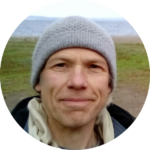
Dr. Matt Pinkerton
(NIWA)
Matt Pinkerton is a Principal Scientist at NIWA, based in Wellington (New Zealand). His research brings together satellite remote sensing of the ocean and ecosystem modelling, with an interest in how environmental variability affects the structure and function of marine food-webs with special focus on the role of middle trophic-level species including zooplankton and mesopelagic fishes. He has worked on the ecology and management of the Ross Sea region for nearly 20 years, including representing New Zealand at CCAMLR meetings and Southern Ocean bioregionalisation workshops.
He is programme leader of the Ross Sea Monitoring and Research Programme “Ross-RAMP”, a 5-year project to monitor and evaluate the conservation value of the Ross Sea region Marine Protected Area, and is objective leader in the New Zealand Antarctic Science Platform.
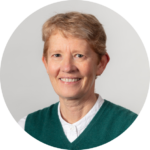
Prof. Mary A. Sewell
(University of Auckland)
Prof. Mary A. Sewell is a marine invertebrate biologist at the University of Auckland (Waipapa Taumata Rau). Her Antarctic research focuses on the meroplankton of the Ross Sea region and much of her research was conducted through the Latitudunal Gradient Project (LGP) along the Victoria Land coast.
.
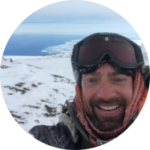
Assoc. Prof. Matthew Stott
(University of Canterbury)
Matthew Stott is a lecturer at the University of Canterbury researching environmental microbiology and the microbial ecology of extreme, unusual and/or energetically-challenging environments. His work encompasses a wide spectrum of topics including new methods for cultivating rare microorganisms, microbial genomics and function, microbial diversity, and the intersection of indigenous data sovereignty and mātauranga within microbiology, genomics and biotechnology. My current focus includes methanotroph ecology, trace gas bioconversion, indigenous data sovereignty, and the ecology of microbial communities in extreme environments, and the sequencing and annotation of novel thermophilic bacterial and bacterial genomes. One of his current research sites are geothermal fields on Mt Erebus at Ross Island in Antarctica.
